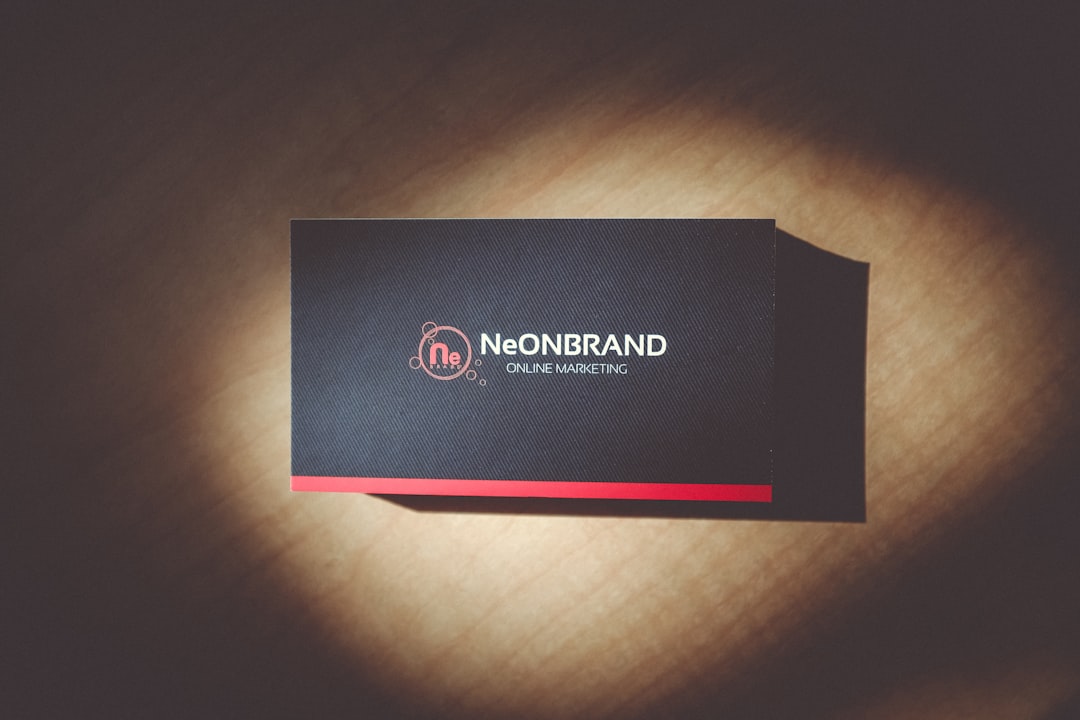Networking is often considered to be one of the most valuable tools for career success. It is a process of building relationships, sharing knowledge, and developing a community of like-minded professionals that can help you achieve your goals. Whether you are looking for a new job, seeking advice, or simply want to expand your horizons, networking can be a powerful way to get ahead in your career.
In today’s competitive job market, networking has become more important than ever. In fact, many experts believe that up to 80% of jobs are found through networking. This is because networking allows you to tap into a hidden job market that is not advertised online or in newspapers. By building relationships with industry professionals, you can gain access to job opportunities that you may not have otherwise known about.
Networking also allows you to stay up-to-date with the latest industry trends and developments. By attending industry events and meeting other professionals, you can learn about new technologies, best practices, and emerging trends that can help you stay ahead of the curve. This knowledge can be invaluable when it comes to advancing your career and staying competitive in your field.
Overall, networking is a crucial part of career success. It allows you to build relationships, gain knowledge, and access job opportunities that may not be available through traditional channels. In the following sections, we will explore some key strategies for successful networking and how you can use them to achieve your career goals.
Know Your Industry – Understanding the Landscape
Understanding the landscape of your industry is crucial to your success in networking. It allows you to identify key players, trends, and challenges, and to position yourself as a valuable contributor to the industry. Knowing your industry also helps you to identify the right networking opportunities and to approach them strategically.
To start, research your industry thoroughly. This includes reading industry publications, attending conferences and trade shows, and following thought leaders and influencers on social media. Pay attention to the latest news and trends, as well as the challenges and opportunities facing your industry.
Once you have a good understanding of your industry, identify the key players. These can include industry associations, professional organizations, and influential individuals. Look for opportunities to connect with these players, such as attending their events or reaching out to them on social media.
Another important aspect of understanding the industry landscape is identifying the gaps in the industry. These gaps represent opportunities for you to position yourself as a valuable contributor. Think about your skills and expertise, and how they can be applied to fill these gaps. This can include developing new products or services, offering innovative solutions to existing problems, or simply sharing your knowledge and experience to help others in the industry.
Ultimately, understanding the landscape of your industry is about positioning yourself as an expert and valuable contributor. By doing so, you will be able to identify the right networking opportunities and approach them strategically, building meaningful connections that will help you to succeed in your career.
This can include developing new products or services, offering innovative solutions to existing problems, or simply sharing your knowledge and experience to help others in the industry.
Build Your Brand: Establishing Yourself as an Industry Expert
Establishing yourself as an industry expert is crucial to your career success. It sets you apart from your peers and gives you a competitive edge. Building your personal brand takes time, effort, and a strategic approach. Here are some tips to help you establish yourself as an industry expert:
1. Identify Your Niche
Identifying your niche is the first step in building your personal brand. Determine what you are passionate about, what you are knowledgeable about, and what sets you apart from others in your industry. Focusing on a specific area of expertise will help you become an authority in your field.
2. Create Valuable Content
Creating valuable content is essential to building your personal brand. Share your expertise through blog posts, articles, videos, and social media. Your content should provide value to your audience and demonstrate your knowledge and expertise.
3. Network with Other Industry Experts
Networking with other industry experts is an excellent way to establish yourself as an authority in your field. Attend industry events, join professional organizations, and connect with others in your industry on social media. Building relationships with other experts in your industry will help you learn from them, collaborate on projects, and gain exposure.
4. Speak at Industry Events
Speaking at industry events is an excellent way to establish yourself as a thought leader in your industry. It provides an opportunity to share your knowledge and expertise with a larger audience and gain exposure. Start by speaking at local events and work your way up to national conferences.
5. Be Consistent
Consistency is key when it comes to building your personal brand. Consistently creating valuable content, networking with other industry experts, and speaking at events will help you establish yourself as an industry expert.
Building your personal brand takes time and effort, but the benefits are well worth it. By establishing yourself as an industry expert, you will gain credibility, attract new business opportunities, and advance your career. Keep these tips in mind as you work to establish yourself as an authority in your field.
It provides an opportunity to share your knowledge and expertise with a larger audience and gain exposure.
Attend Events: Finding and Choosing the Right Networking Opportunities
Attending events can be a great way to meet new people, expand your network, and potentially find new career opportunities. However, with so many events out there, it can be overwhelming to choose which ones to attend.
First, consider the type of event that would be most beneficial for your career goals. Industry conferences and trade shows are great for networking with professionals in your field, while networking events hosted by professional organizations or local business groups can be a good way to meet people outside of your industry.
Once you’ve identified the type of event you want to attend, research the specific events happening in your area. Look at the attendee list and see if there are any potential connections you could make. Check out the speakers and topics to make sure it’s relevant to your interests and goals.
Don’t be afraid to attend events alone, as it can be a great way to push yourself out of your comfort zone and meet new people. However, if you’re feeling nervous, consider bringing a friend or colleague along for support.
When you arrive at the event, be sure to have a plan in place for how you will approach people and start conversations. Have a few open-ended questions ready to ask, such as “What brings you to this event?” or “What do you enjoy most about your job?” Remember to actively listen and engage with the person you’re speaking with.
Finally, don’t forget to exchange contact information with the people you meet. Follow up with them after the event to stay in touch and continue building your relationship.
Attending events can be a valuable tool in your networking toolkit. With some research and preparation, you can find the right events to attend, make meaningful connections, and ultimately advance your career.
Finally, don’t forget to exchange contact information with the people you meet.
Work the Room: Tips for Making Meaningful Connections
Networking events can be overwhelming and intimidating, but with the right approach, you can make meaningful connections that can help advance your career. Here are some tips to help you work the room and make the most of your networking opportunities.
1. Be Prepared: Before attending an event, do your research. Find out who will be attending and identify the people you want to meet. Have a clear idea of what you want to achieve and what you can offer. Prepare your elevator pitch and make sure you have plenty of business cards.
2. Be Approachable: Make sure you look approachable and friendly. Smile, make eye contact, and have an open posture. Don’t be afraid to approach people and start a conversation. Remember, everyone is there to network, and they are just as nervous as you are.
3. Listen and Ask Questions: When you meet someone, take the time to listen to what they have to say. Ask open-ended questions that encourage them to talk about themselves and their work. Show a genuine interest in what they do and what they are looking for.
4. Share Your Expertise: Networking is not just about what you can get, but also what you can offer. Share your expertise and knowledge with others. Offer advice, insights, and help where you can. Be generous with your time and resources.
5. Follow Up: After the event, make sure you follow up with the people you met. Send a personalized email or LinkedIn message thanking them for their time and reminding them of what you discussed. Keep the conversation going and look for ways to build a relationship.
Remember, networking is a long-term game. It’s not about making a quick sale or landing a job on the spot. It’s about building relationships and developing a network of contacts that can help you achieve your career goals. Be patient, persistent, and genuine, and you will see the benefits of networking over time.
Listen and Ask Questions: When you meet someone, take the time to listen to what they have to say.
Follow Up: Turning Conversations into Relationships
Networking events can be overwhelming, but don’t let that stop you from making meaningful connections. After you’ve successfully worked the room and connected with individuals who have similar interests or work in your industry, it’s time to follow up.
Following up is a crucial step in turning conversations into relationships. It demonstrates your professionalism, interest in the other person, and willingness to maintain contact. It also gives you the opportunity to continue the conversation, share resources, and potentially collaborate on future projects.
Here are some tips for following up effectively:
1. Send a personalized email: Send an email within 24-48 hours of meeting someone. Personalize the email by referencing something specific you talked about during your conversation. Express your gratitude for meeting them and ask if they would be interested in meeting up again or continuing the conversation.
2. Connect on LinkedIn: LinkedIn is a great platform for professional networking. Connect with the person you met and send a personalized message. This will allow you to stay in contact and continue to build the relationship.
3. Share relevant resources: If you come across an article or resource that you think the person would find interesting, send it to them. This shows that you were listening during your conversation and are invested in their interests.
4. Invite them to events: If you know of any upcoming events or conferences that you think the person would be interested in, invite them to attend with you. This is a great way to continue the conversation and build a stronger relationship.
Remember, following up is not just about networking, it’s about building relationships. Be patient and consistent in your efforts to maintain contact with the individuals you meet. It may take time, but with continued effort, these relationships can lead to long-term success in your career.
Invite them to events: If you know of any upcoming events or conferences that you think the person would be interested in, invite them to attend with you.
Conclusion: Putting Your Networking Skills into Practice for Long-Term Success
Congratulations! You have successfully navigated your way through the world of networking and have gained valuable skills that will help you achieve long-term success in your career. But the journey doesn’t end here. It’s time to put your networking skills into practice and take your career to the next level.
First and foremost, remember to continue to be proactive in seeking out networking opportunities. Don’t wait for events to come to you – take the initiative to research and find events that are relevant to your industry and goals. Keep an eye on industry publications, social media, and professional organizations for upcoming events.
When attending events, remember to approach networking with a goal in mind. Whether it’s to meet a particular person, gain insight on a specific topic, or simply expand your professional network, having a clear objective will help you stay focused and make the most out of your time.
As you work the room, be sure to make meaningful connections by actively listening to those you meet and finding common ground. Don’t be afraid to ask questions and show genuine interest in the people you are speaking with.
After the event, follow up with those you have met. This is where the true power of networking lies – in building long-term relationships. Send a personalized email or LinkedIn message thanking them for their time and expressing your interest in staying in touch.
Finally, remember to continue to build your brand and establish yourself as an industry expert. Share your knowledge and experience through blog posts, social media, and industry events. By positioning yourself as a thought leader, you will attract like-minded individuals and further expand your network.
In conclusion, networking is a key component to achieving career success. By understanding your industry, building your brand, attending events, working the room, following up, and putting these skills into practice, you can create long-term relationships that will benefit you throughout your career. So go forth, network with purpose, and watch your career soar.





